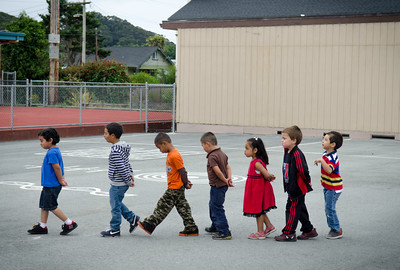One of Fernando Macias’s worst high school memories is the driving theory class he took when he was 16. It was a requirement to graduate. It would have given him a thrill – the prospect of having his own car, of driving, of freedom – but it felt like a betrayal. Because when their instructor asked students to bring in their IDs to start the process of applying for a license, Macias knew he couldn’t do that.
He didn’t have one.
That year, Macias and several of his Mexico-born friends watched their American classmates get their licenses and ecstatically show them off. It made him angry. It made him sad.
“I didn’t even see the point in taking the class because I wasn’t ever going to be a licensed driver,” he says. Ironically, he ended up getting an “A.”
But Macias’ life unexpectedly changed in 2012 when President Obama announced a new program called DACA (Deferred Action for Childhood Arrivals). While not a path to citizenship, it guaranteed young people living in the U.S. since 2007 the right to remain in the country for two years – and to work, go to college, and apply for a driver’s license.
When Macias’ mother, Yanet, told him about DACA and about the license part, “I said, ‘I’m going for this.’” And he did. In October 2012, the 16-year-old became the first youth in the entire South Coast region to receive a DACA work permit. In quick succession, he got his California ID. And then, finally, his driver’s license.
“When I got my license, that was a really happy day for me,” says Macias, who is now 18 and will graduate from Pescadero High this summer.
Other things changed. For the first time in his life, he started working hard in school. He’d been failing most classes, skipping school. “I had this friend – we would have these competitions for who would have the lowest results in tests. My friend won by 5%. We wouldn’t even touch the pencil,” he recalls.
Sometimes he didn’t come home, or when he did, he wouldn’t tell his parents where he’d been. He wanted to drop out of school, but they refused to let him.
In an interview in 2012, Yanet Macias explained that her son, the eldest of four brothers and only one of all his siblings to be born in Mexico, couldn’t see past high school.
“In the past he used to say, ‘Whether I get an A or an F, it doesn’t matter. I’m not going to be able to go to college or get a license to get into the profession I want.’ Now he knows he’s working to get into college.”
A total of 23 local youth have received work permits under DACA since 2012 and 14 have already renewed the two-year permit. They were all facing the same uncertain future here. DACA has changed all their lives, says Rita Mancera, Program Director for Puente. They’ve obtained Social Security cards, driver’s licenses and work permits. They’ve stopped looking over their shoulders. And the college-bound students also became eligible for financial aid.
“That’s what DACA does. It erases the barriers. Puente has been able to level the field for all the youth regardless of their status,” Mancera says.

Because of DACA, more students on the South Coast have options.
A second wave of youth, those who arrived in the U.S. by January 1, 2010, were set to benefit from an expanded DACA program outlined in President Obama’s recent executive order. Unfortunately, that program is on hold while the Justice Department appeals a Texas court decision that prevented Obama’s action from taking effect. DAPA, a related program to protect some families from deportation while they raise their children here, was also put on hold. DAPA could benefit as many as 120 South Coast parents and allow them to remain united with their children.
The Department of Homeland Security is moving forward and preparing for a wave of DACA and DAPA applications, and so is Puente. Three staff members and three volunteers are pursuing an accreditation that will help them expand Puente’s immigration services. In the meantime, Mancera has had to break the news to several young people who had already completed all the DACA paperwork: their applications are on hold.
“What are you going to tell them? It’s like the courts are playing with them. And I was so excited to talk to them about all the opportunities they were going to have,” she says.
The benefits of DACA aren’t just legal, they’re psychological. Pat Talbot, Principal of Pescadero Middle and High School, says the school district treats all its students the same, and pushes them all equally. But the fact is that some students are not equal. You can see it in their motivation to succeed. Some can’t apply for college scholarships, let alone legally drive to school. But DACA has transformed their outlook, she says. “I’ve seen a change in those students – a sense of pride.”
Talbot says Macias’ grades have vastly improved, especially in math. She suspects that things changed when he got his driver’s license. “Just being a regular teenager was huge for him,” she adds.
The story only gets better from there. As a participant in Puente’s youth leadership development program, Macias did childcare, office work, and was a summer camp counselor. With his new documents, Macias secured housekeeping work at an outdoor conference center near his home in Loma Mar. He eventually saved up $14,000, enough to buy his dream car, a used silver Infinity G35. When he’s not in school or applying for college scholarships, he’s in his sports coupe with sunroof open and the windows down, blasting music as he drives down the highway, using his freedom to explore the place he has always called home.
“To me it’s a symbol that change is happening,” he says. “I hope it keeps being that way.”


